
GIVE THIS RAMADAN

Unpredictable weather patterns, like drought and excessive rainfall, are devastating agricultural production across Nepal. Rural families who depend on farming for their livelihoods now face daily challenges in securing food and income.
To make matters worse, Nepal is grappling with an economic crisis as agricultural production fails and unemployment grows. With limited opportunities, many men are forced to leave the country for employment and education. The International Federation of Red Cross and Red Crescent Societies reports that over 2.1 million Nepalis live and work abroad.
However, despite the adversity, the forced migration has prompted a remarkable response from Nepalese women, who are taking on leadership roles and challenging deeply ingrained gender biases.
In the face of hardship, the resilience of Nepalese women has become a beacon of hope, defying traditional norms and fostering positive change within their communities.
For Goma Bishwakarma, it was out of the question to sit back and wait for her husband’s return, who, like many other men in her village, was forced to leave for work in Qatar. Instead of dwelling on the potential challenges, Goma saw the situation as an opportunity. Knowing nothing about local politics, she took the plunge and ran to represent her village as an elected ward member. “Honestly, I didn’t know much about it. Someone in the village put my name forward, and I was elected in the 2017 elections. The economic situation is very difficult. My heart tells me that I have to help whoever is struggling.”
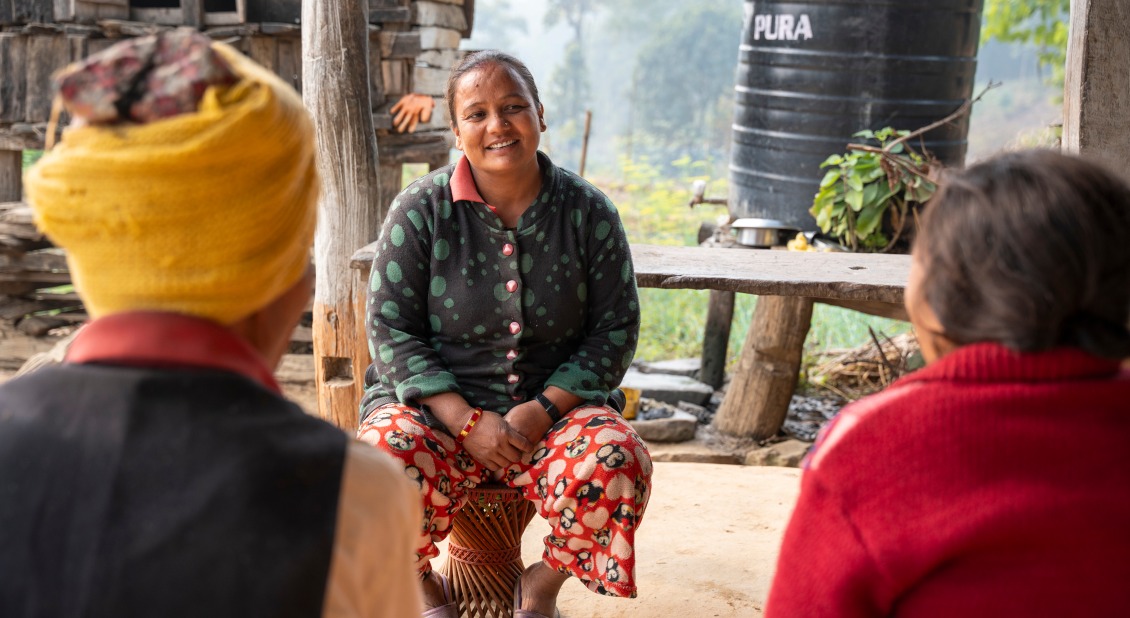
While many Nepalese families and communities have become supportive of women in leadership roles, there’s still a lot of work that needs to be done to fight gender discrimination across the nation.
As for Goma, she continues to use her voice as a committed activist. “I always stress that women can also earn money and are a valuable resource,” she says.
It’s not unusual to see Goma at rallies, where she raises awareness about the importance of a healthy, diversified diet for women and children. The latest rally she attended brought together over 150 women and girls to demand equal rights to quality food.
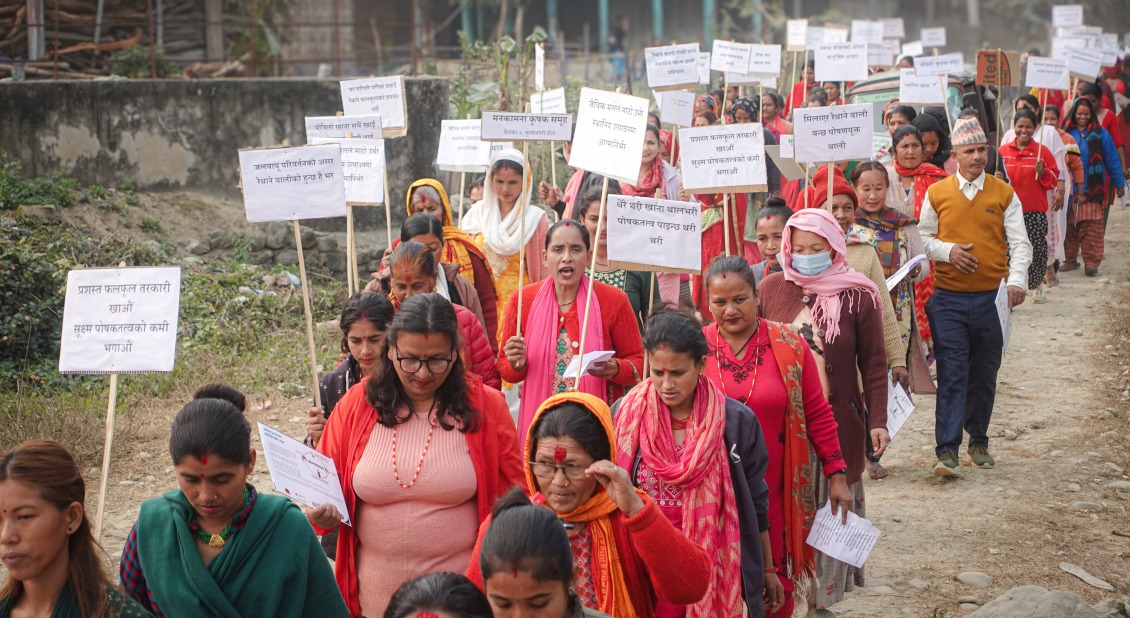
While food is widely available throughout the country, the province of Udayapurere, where Goma lives, records a global acute malnutrition rate of 15.1%, higher than the national average.
That’s why Goma is part of a project run by Action Against Hunger and a local association, Sahara, which aims to strengthen local agricultural production and the livelihoods of vulnerable households. “The women in our village have had various types of training, but we couldn’t earn anything. This project is a game-changer,” says Goma.

Alita Tamang lives in a small village in Rasuwa district, a few kilometres from Tibet. In 2015, the district was hit hard by an earthquake, which devastated Alita’s village.
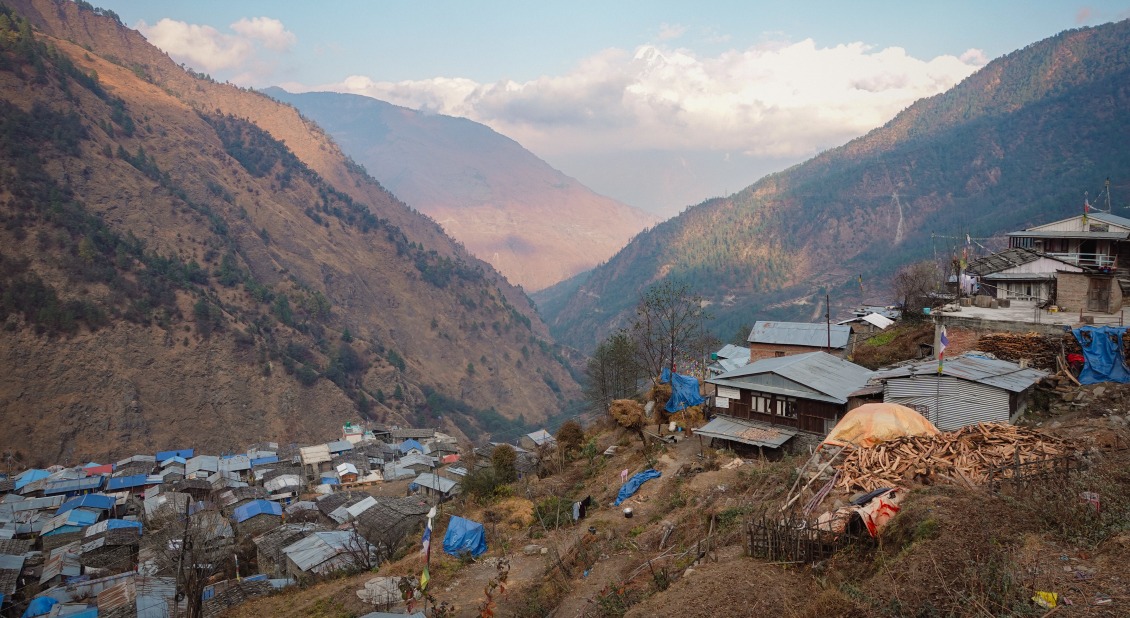
“When the earthquake hit, people hid in the forest. In the house next door, several people died under the rubble,” recalls Alita. Because of the severe damage, Alita’s village was declared a red zone, making it nearly impossible to rebuild. “We decided to stay here and rebuild what we could, since we needed land for our kitchen gardens. Moving elsewhere meant losing our land, our community’s main means of subsistence,” explains Alita.
Today, Alita spends long hours working in the fields, where she’s forced to water her crops by trekking to the only water point in her community. The process is time-consuming, especially considering she also juggles the upkeep of her household and day-to-day community life.
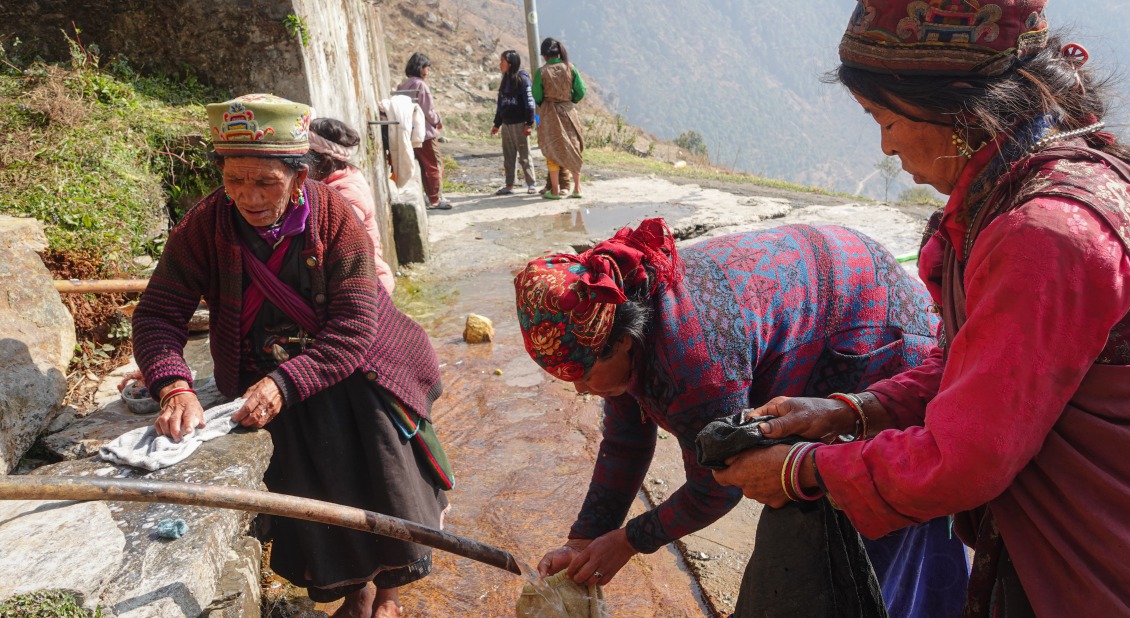
But Alita’s village will soon be connected to a water network as part of a project supported by Action Against Hunger and Sahara that aims to improve access to water in remote villages.
Despite her busy schedule, Alita plays an essential role as a member of the water users’ collective, which helps ensure the community’s water network runs smoothly.
After a long day, Alita retreats to her workshop. There, time seems to fly by as she immerses herself in knitting, an activity which is her refuge, where she can give free rein to her creativity and find a well-deserved moment of peace after a busy day. Her dream is to be able to weave traditional garments and make a living from them, “The people who stay in the village don’t have particular skills to earn a living. Women work in the fields, but what we really need are different types of training to generate additional income. I want to devote myself fully to knitting and selling my clothes.”
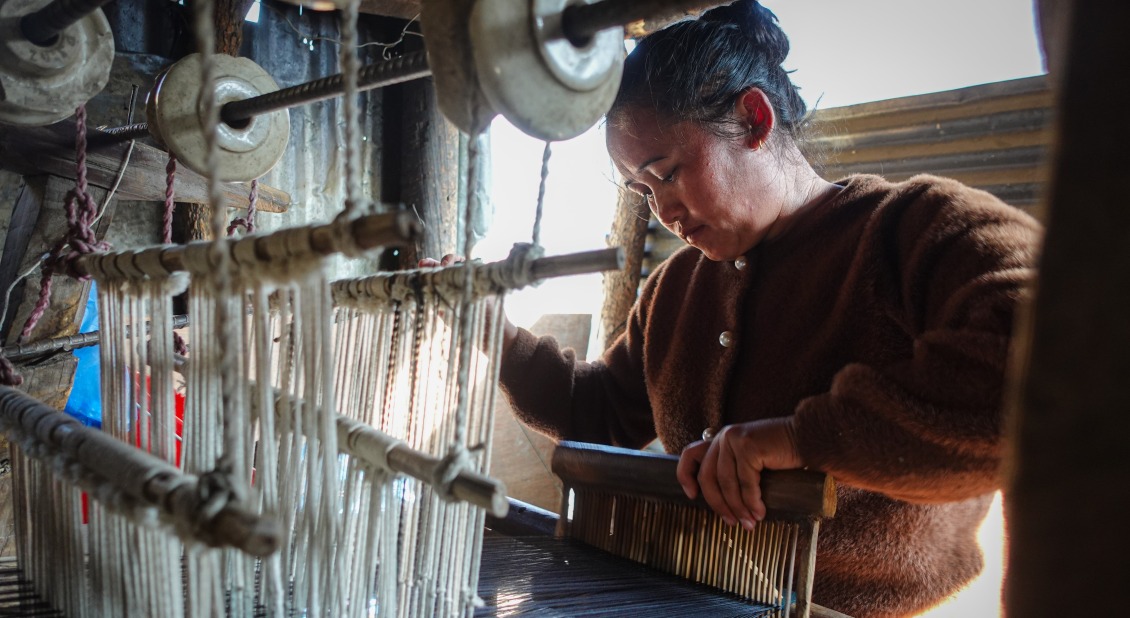
Goma and Alita exemplify the daily challenges faced by Nepalese women in their quest for equality. Overcoming doubt, limited resources, and, at times, lack of education, they courageously assert themselves as leaders despite incredible obstacles. By educating men, women, and children about gender equality and the pivotal role of women in society, Goma, Alita, and the other women of their community are laying the foundation for a brighter future in Nepal and beyond.
From March 11 to 22, as part of the 68th session of the United Nations Commission on the Status of Women (CSW), Action Against Hunger will call on governments to promote universal, feminist social protection models. To tackle the root causes of undernutrition and food insecurity and to build a more egalitarian society, Action Against Hunger will appeal for universal health coverage and a basic income for the first 1,000 days of a child’s life, for everyone, regardless of income, to the world’s leading body devoted exclusively to promoting gender equality.
Join our community of supporters passionate about ending world hunger.